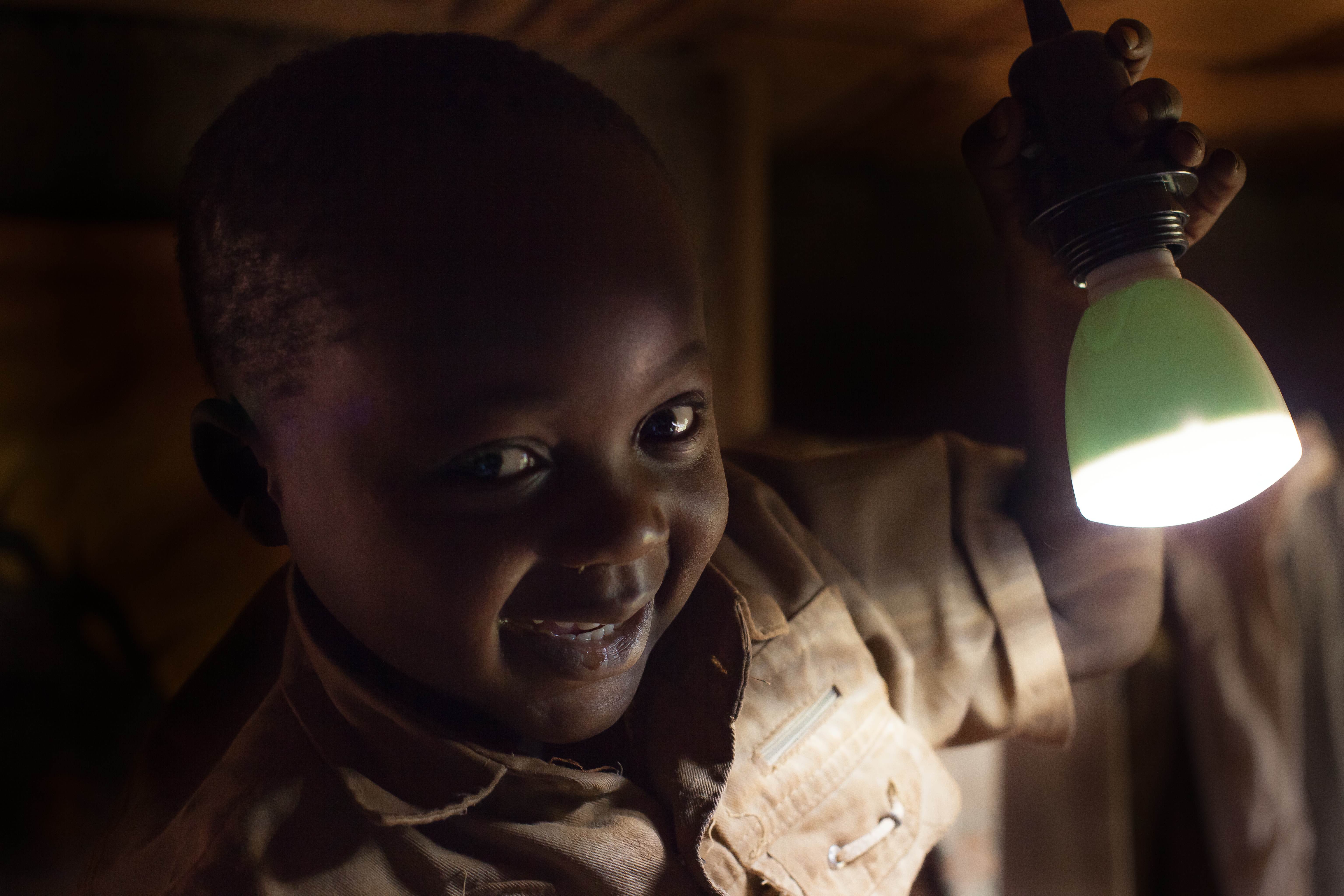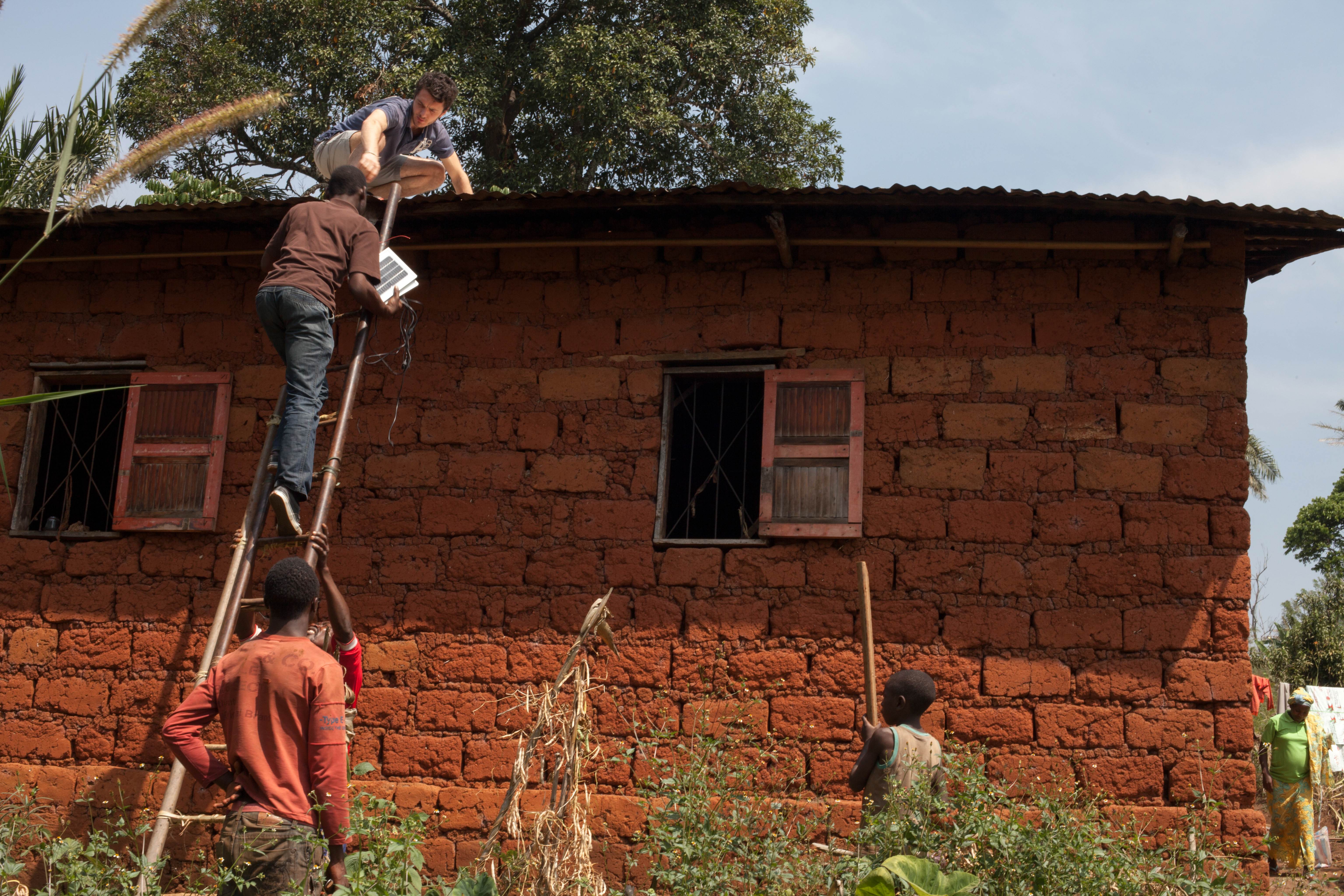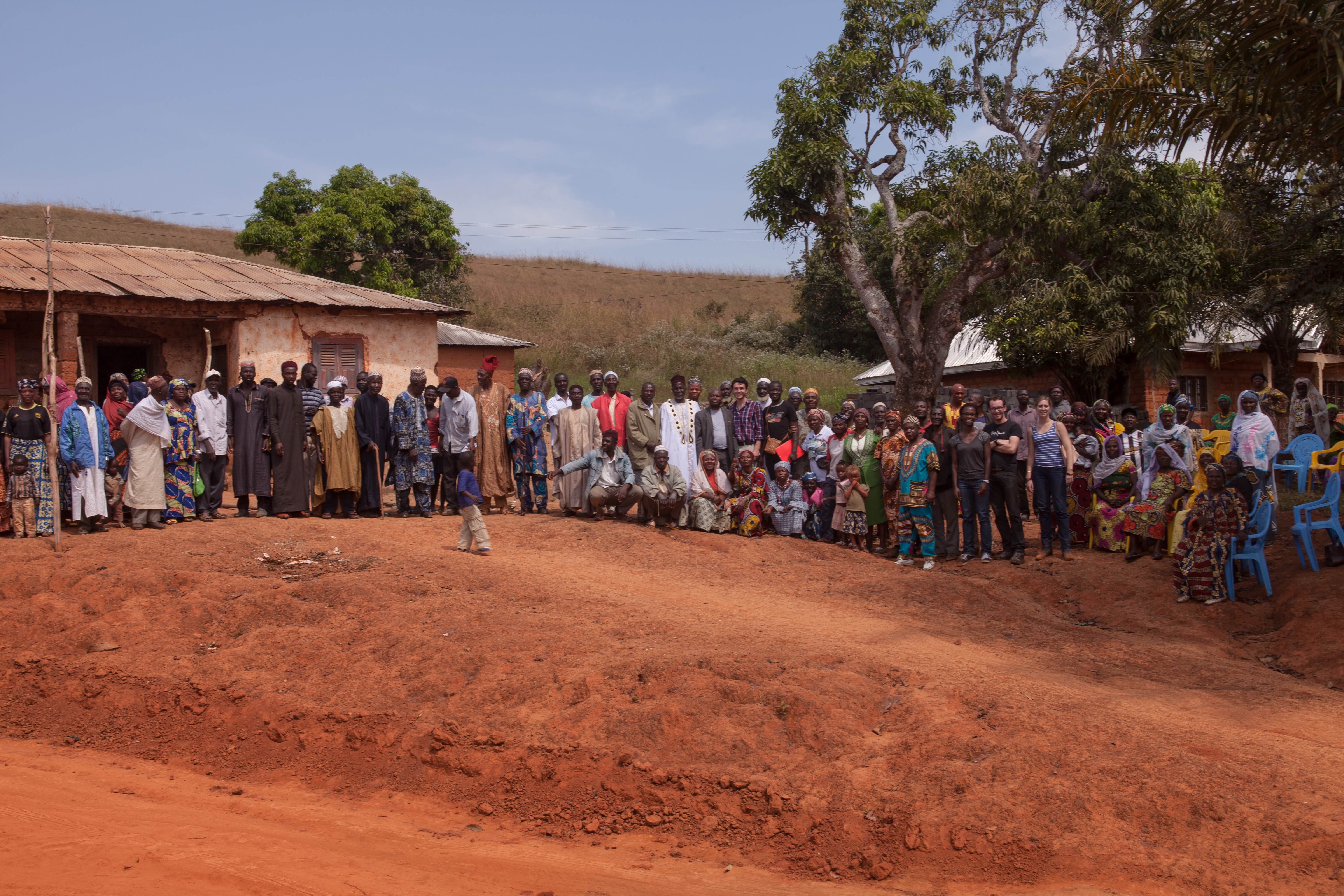DATABASE
upOwa, sustainable solar electricity for all
ongoing
Country
Cameroon
Budget
0 - 500.000 $
Year
2015
Issue
Solutions
Link
www.upowa.org
Abstract
upOwa develops and operates smart solar systems to power lights and cellphones in African off-grid villages on a pay-as-you-go model. Thanks to upOwa, off-grid communities get electricity at home with unlimited maintenance on the system and without upfront cost. With upOwa we power people now !
Project Description
In African rural villages, every time a phone runs out of battery, people walk to the next town with a generator and pay a high cost for recharges. At the end of the day, children do their homework with only light from candles or dangerous kerosene lamps. This energy poverty is the daily routine for 600 million people in Africa. upOwa develops and operates smart solar systems to power lights and cellphones in African off-grid villages on a pay-as-you-go model. upOwa produces and installs autonomous solar systems in houses that power lights and charge cell-phones. The systems are installed for free. Families buy electricity credits at local shops or with mobile payment that activates their systems for a determined use. With this innovative payment scheme based on ICT technology, upOwa’s system adapt to customer’s revenues and shifts the former dynamic of loan-repayments to proactive payments. Secondly, mobile money payments allow fast, secure and effective money collection. upOwa's first project is to install 100 solar systems in 4 communes around Bafoussam, the third city in Cameroun. The deployment of upOwa received the support of the mayor association of the western part of Cameroun. The other off-grid communes are impatiently waiting for more solar systems to be installed. Indeed, upOwa has a strong social impact on off-grid communities. With affordable access to clean electricity, children study longer at night and health hazards due to kerosene lamps are dramatically reduced. Villages get a chance to leapfrog to modern energy and communication technology. With upOwa, we power people now!
BENEFICIARIES
Beneficiaries of upOwa services are families and entrepreneurs living in villages without electricity. In the western part of Cameroun only, 800,000 people live in the dark at night. With upOwa, 100 families can light up their homes with solar electricity.
Results
upOwa brings light in villages. Children can study longer at night and parents can increase their activities. Families stop using kerosene lamps that produce toxic fumes and intoxicate family members. With 100 systems installed, upOwa will replace candles, kerosene and power generators previously used by communities to light their places and charge cell phones. A household with upOwa’s system decreases its CO2 emissions by 54 kg a year. Thus, upOwa participates in the mitigation of climate change. Additionally, upOwa aims at creating a momentum for sustainable adoption of clean energy in off-grid communities with a progressive independence acquired vis-à-vis polluting energies such as fossil fuels used for lightning. upOwa wants to promote long term adoption of clean energy in off-grid communities.
Business Model
upOwa install solar system at no charge. Families buy electricity credits at local shops or with mobile payment to activate their system for a specific time. The electricity credits sales cover costs to produce solar systems, distribute and maintain them. Thus upOwa’s business model tackles a lack of electricity access by offering risk free solutions to off-grid communities. Thanks to upOwa, communities get electricity without any upfront investment and with a full control over expenses.
Lessons Learnt
In Africa, most villages are not connected to the electrical grid. For 600 million people, simple activities such as cooking or studying become time-consuming, dangerous end expensive. There is a strong demand for electricity services. We found out that families are ready to pay for quality services that substantially improve their quality of life and education opportunity for their children. They value services that are risk free and embedded in their local economy. In the region of Bafoussam in Western Cameroun, hundreds of villages are waiting for upOwa’s systems to be deployed to finally bring sustainable and affordable electricity to these off-grid villages.
Key Feature
upOwa’s operations are embedded in the local economy as electricity credits are sold by local small shops and maintenance is assured by local technicians. upOwa has also partnered with industrial partners to produce the solar systems, French and American NGOs (such as Local Energy Network) to provide training to local population on clean energy and research institute such as 2iE, the leading institute for renewable energy in West Africa. With the revenues from electricity credits, upOwa offer unlimited warranty on the system, proving its long term approach and vision for electricity supply in rural area. Monitoring the impact of upOwa’s operations will be done automatically by analyzing electricity credits sold by local shops. upOwa’s model was first created after the team interviewed around 30 social entrepreneurs around the world, asking about their experience and vision for the future. upOwa’s model is very easily scalable and replicable. upOwa’s solar systems can be installed in any community that needs electricity services (its size or remoteness does not matter). The solar kits can be placed on all types of roof and resist adverse weather conditions. Furthermore, upOwa’s solar kits do not need GSM coverage to function and therefore they can be deployed without any infrastructure restrictions. The potential for scaling up and replicate upOwa is immense!
Main Donor
upOwa
(Private sector)
Implementing Actor
upOwa (Private sector)



